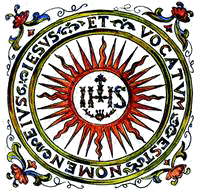Hail, Mary
She was there at the Cross. Yet Protestants seldom talk about the mother of Jesus at Easter, or at most other times. But they are starting to now
By David Van Biema
Had the Rev. Brian Maguire hit on the idea 30 years ago, he might have found himself facing some very annoyed congregants. Four hundred fifty years ago, someone professing similar notions might even have been hanged.
The 35-year-old pastor’s brainstorm concerned a scheduling conflict on the day of the Annunciation. The holiday, which celebrates Mary’s learning from the angel Gabriel that she will give birth to the Messiah, always falls on March 25, precisely nine months before Christmas. But this year the 25th is also Good Friday, when Christians somberly recall that same Messiah’s Crucifixion.
Roman Catholicism, which traditionally observes both dates, has rules for this eventuality: Catholics worldwide will mark the Annunciation on April 4 this year. But Maguire is not Catholic; he is the pastor of Westminster Presbyterian Church in Xenia, Ohio. And in light of what he calls “a beautiful, poetic opportunity,” he says that rather than preach on Jesus alone this Good Friday, he will bring in Mary as well. “If you have Jesus’ entrance and exit on the same day,” Maguire explains, “she should play a part in that—because she was the first and last disciple to reach out during his life.”
There is an elegance to this plan; Maguire, who attended Princeton Theological Seminary, is no theological naïf. But until quite recently, his decision to pair the gravest day on the Christian calendar with a Marian celebration would have struck most of his fellow Protestants as peculiar, if not doctrinally perverse. For roughly 300 years until the 1900s, Protestants, while granting Mary her indisputable place as the mother of Jesus, regarded any additional enthusiasm as tantamount to “Mariolatry,” the alleged (and allegedly nonbiblical) elevation of the Virgin to a status approaching Christ’s that some understood as a cause of their initial breaking with Catholicism. Even as open hostility largely abated in the U.S., some taboos prevailed. Beverly Gaventa, a professor of New Testament literature at Princeton, has portrayed Mary as the victim of “a Protestant conspiracy of silence: theologically, liturgically and devotionally.” Most Protestants (excluding some high-church Episcopalians) can identify with the experience of Kathleen Norris, an author who has written of her upbringing, “We dragged Mary out at Christmas ... and ... packed her safely in the crèche box for the rest of the year. We ... denied [her] place in Christian tradition and were disdainful of the reverence displayed for her, so public and emotional, by Catholics.”
But things have begun to change, and not just among theologians.
Read the story.




















No comments:
Post a Comment